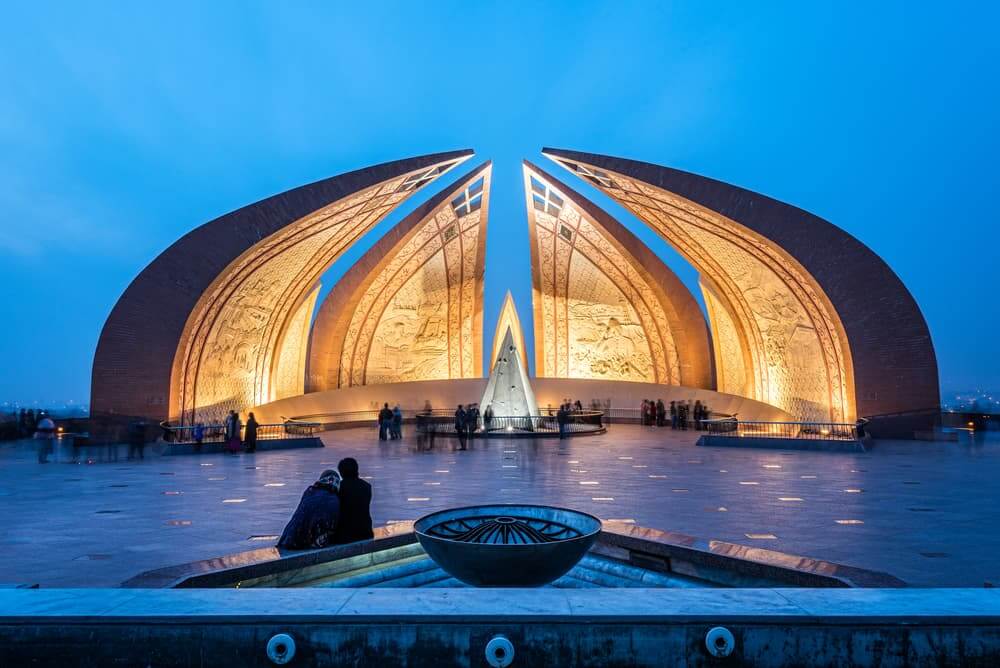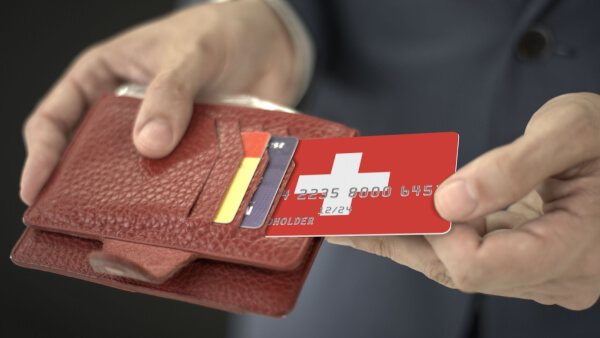HSBC Premier vs Barclays Premier (2025 Guide)
Read our essential guide to HSBC Premier vs. Barclays Premier, comparing the two premium accounts on features, perks and fees.

While Pakistan isn’t often counted among the top destinations for expats, more and more people have been migrating there in recent years for its incredible sense of community, rich culture, historical sites, stunning landscape, luxurious shopping and delicious food.
Because of the complicated banking systems that seem pervasive across parts of Asia, many expats struggle to wrap their heads around their finances as they make their move overseas.
In reality though, the process of setting up your banking in Pakistan can be quite simple, and this guide will walk you through everything you need to know about opening an account.
If you live in Pakistan and have resident status, you should be able to open a bank account at most banks¹. You’ll need to take along valid ID, and any additional documents needed such as proof of residence status, address or income.
Some banks in Pakistan will limit expats to non-resident accounts only². These usually have different terms, such as higher fees and a higher minimum balance.
The process of opening an account should be pretty simple and quick. You’ll need to make an appointment at your nearest bank, and when you go in you’ll be asked to fill out an application form and submit your documents.
If you don’t speak Punjabi or Pashto, you’ll probably find a staff member who speaks perfect English, though you may want to bring a translator with you just in case.
The exact documents you need will vary from bank to bank, and it’s a good idea to call ahead to find out what you need so you’re not stuck making multiple trips. Some documents that are fairly universally required include²:
If you’re aiming to open a business bank account, you’ll need a number of additional documents³. This includes proof of business address, company letterhead, company registration information and details of directors and partners in the business.
Many of Pakistan’s major banks will let you complete an online application form in order to open a bank account. You’ll need to have your documentation to hand, and access to a scanner or a digital copy so you can upload the required paperwork as part of the online application process.
Others require you to make an appointment at or simply visit a local branch, even for those where the initial application is made online. It’s likely that as an expat, without a Computerised National Identity Card (CNIC), you’ll need to visit a branch in person to verify your identity.
The time it takes to get your new Pakistani bank account up and running depends on the bank, the type of account you’re opening and perhaps even your residence status too (as more documentation may be required). But usually, it takes around 7 to 15 days³ between submitting your application and the activation of your new bank account.
If you’re planning your big move overseas, it can be useful to get a headstart on processing like opening a bank account while still in the UK.
But the big question is - is it even possible to open a bank account in Pakistan from abroad? Yes, but it depends on the bank.
In some cases, Pakistani banks will permit you to at least start the process of applying online from abroad⁴. You can contact the bank to find out if it’s possible and what you need to do. You can then fill in an application form and send over your documents.
However, it’s likely that the bank will require your physical presence at a branch in Pakistan at some point, whether it’s to verify your identity or request further information. So you might need to factor an extra trip overseas into your plans, or finalise the opening of your account when you arrive on moving day.
Many banks in Pakistan also offer something known as a Roshan Digital Account⁵, which is specially designed for non-resident Pakistanis living in other countries. The account, on offer at MCB Bank, Meezan Bank, UBL, HBL and many other banks, aims to make it quick and easy for people with Pakistani citizenship to open accounts in their home country while abroad. So, if you’re a Pakistani citizen, this could be a good option for you.
What bank you choose will come down to what type of account you need, what services you use most, and which bank is closest to your home or office.
There are a wide range of local and international banks available in Pakistan, including some major players from across the globe like Citibank, Standard Chartered Bank and Deutsche Bank.
Some of the most popular retail banks in Pakistan include:
It’s no wonder so many Pakistani residents choose the National Bank of Pakistan (NDP), with over 1,300 convenient ATMs⁶ and even more branches scattered across the country. Some options for National Bank of Pakistan customers include:
With branches and ATMs across 32 cities and 11 countries⁷, Habib Bank Limited is another popular choice for residents of Pakistan. Habib Bank Limited (HBL) offers the following products and services:
United Bank Limited (UBL) is a market leader in banking and financial services in Pakistan, and also has a presence on four different continents. In Pakistan itself, you’ll find over 1,400 UBL branches and ATMs⁸, although the multi-national bank is also leading the charge towards branchless, online-only banking for the convenience of its customers. They offer:
Founded in 1947, MCB Bank is one of Pakistan’s oldest and largest banks, with over 1,400 branches⁹ in towns and cities across the country. Some of the services MCB Bank offers include:
If you’re having no luck opening an account at one of Pakistan’s national banks, it could be worth looking into international banks with branches in both your country and Pakistan. For example, Citibank, Standard Chartered Bank or Deutsche Bank.
They may be able to help you open a bank account in Pakistan from the UK, transfer over an account, or at least start the process.
No matter where in the world you’re banking, your account is likely to come with some fees attached. These can be fairly variable depending on the account, and it’s a good idea to check out the fees list at the bank of your choice committing to opening an account there.
Some fees you’ll probably face when banking in Pakistan include ATM fees, account maintenance fees, minimum balance charges and international transfer fees.
Taking out cash at your own bank’s ATM usually won’t incur a fee, but withdrawing funds from another bank’s machine will cost you. While the fees don’t usually exceed around 19 PKR¹⁰ (approx £0.90 GBP) per transaction, they can add up. This is why it’s a good idea to try to use your own bank’s ATM as often as possible.
If you’re using a debit card from your home country in Pakistan, or using a card from your Pakistan bank account abroad, it’s a good idea to keep an eye out for foreign ATM fees. These are usually comprised of a flat fee as dictated by the ATM, plus a percentage of your withdrawal that goes back to your bank. There may also be currency conversion charges, along with a mark-up on the exchange rate.
While most routine bank fees have been reduced or even eliminated in recent years, you may still run into:
These fees vary from bank to bank, and depending on the account you choose. It’s a good idea to check the fees before opening an account, to see how much it could potentially cost you.
International money transfers can be more expensive than advertised, with the charges often buried deep within Schedule of Charges documents. If you need to send money back to the UK or to another country, check these fees out first - then keep a close eye on what you’re spending.
Fees for international transfers are usually made up of a flat rate, a percentage of your transfer, currency conversion fees and a markup on the exchange rate, which may not actually be disclosed.
If you do move money between countries often, it could be a good idea to use Wise rather than a bank - whether in Pakistan or the UK.
Banks all over the world tend to charge high fees for international transfers, along with offering unfavourable exchange rates. It can sometimes take a long time for overseas payments to be processed too. Luckily, there is a better solution available.
Open a Wise multi-currency account and you can send money worldwide for low fees and the real, mid-market exchange rate. There’s no hidden charges, no mark ups and you can hold up to 54 currencies at once, including PKR, GBP, USD, EUR and many more.
You can also get a Wise debit card, which can help you swerve foreign transaction fees when spending and withdrawing cash in other countries. This international debit card has a very clever feature - it automatically converts currency at the real, mid-market exchange rate whenever you spend. There’s only a tiny conversion fee to pay, or it’s free if you already have the currency in your account.
This means that you’ll only need one debit card for great value spending in Pakistan, the UK or wherever you are in the world.
So, after reading this guide, you should have a better idea of how to open a bank account in Pakistan. We’ve covered all the essentials, from how the process works, the kinds of documents you’ll need and some of the top banks in Pakistan to choose from. You should be all set to open your account and manage your banking while living as an expat in Pakistan. Good luck!
Sources used for this article:
Sources checked on 23-July-2021.
*Please see terms of use and product availability for your region or visit Wise fees and pricing for the most up to date pricing and fee information.
This publication is provided for general information purposes and does not constitute legal, tax or other professional advice from Wise Payments Limited or its subsidiaries and its affiliates, and it is not intended as a substitute for obtaining advice from a financial advisor or any other professional.
We make no representations, warranties or guarantees, whether expressed or implied, that the content in the publication is accurate, complete or up to date.

Read our essential guide to HSBC Premier vs. Barclays Premier, comparing the two premium accounts on features, perks and fees.

Discover the best expat bank accounts in the UK, including monthly fees, account benefits, and who is eligible for a non-resident bank account in the country.

Read our handy guide on if you can keep your bank account in Switzerland if you move abroad? Find out everything you need to know.

Read our guide and find out how to open a Chase UK account, how long the process takes and all the details you need to get started.

Read our guide to Starling Bank limits on UK and international transfers, ATM withdrawals and card spending for personal customers.

Find out how to open a Starling Bank account online in the UK with our comprehensive guide, covering eligibility, requirements and how to get started.